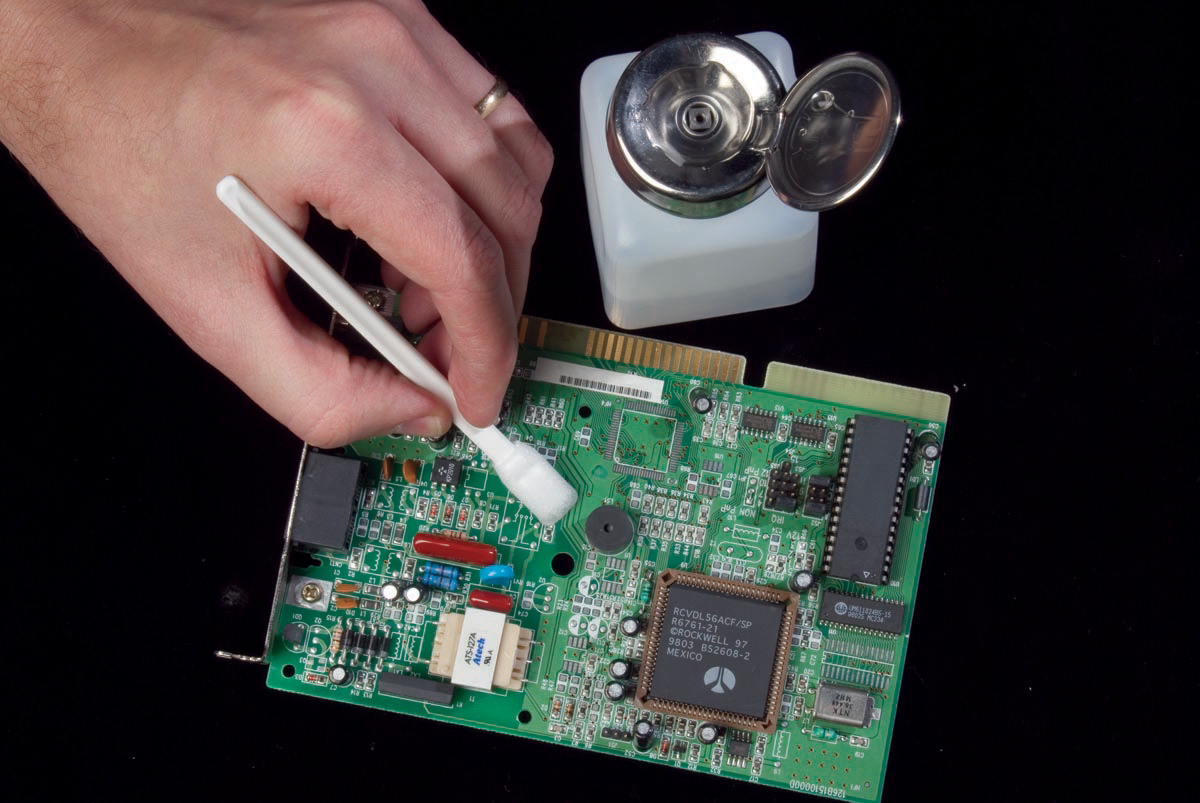This is a brief introduction to selecting a precision swab for use in laboratories, clean rooms, electronic assembly, rework and repair of electronics. We’ll be speaking in generalities, but you may choose a swab for a specific reason or for a very specific job. Swabs can be used as applicators or removers. Let's discuss their use as removers first.
Specifically, removing contamination soils from delicate or precision parts. The swabs generally are effective tools for three reasons. One is they can clean a small area as opposed to exposing the whole device to the cleaning solvents. Second, swabs are good at applying gentle scrubbing action. Third swabs are good at getting into tight little crevices and things where other cleaning devices can't get into and you can precisely get in and pull that contamination out. Really choosing a swab is about matching the cleaning job requirements with the materials and geometries of the swab. Essentially the right tool for the job.
A swab is a basically a wipe on a stick. The properties that we want these swabs to have are absorbency because after all we want the swab to pull the soil, absorbed the soil from the device we're trying to clean. We want it to be durable so that the solvent we're used to clean doesn't harm the swab or damage the swab. Cleanliness, because we want the swab to always pick up contaminants, not deposit any new contaminants. Then geometry, we want the swab to fit the precise area or precise crevice that we're trying to clean.
There are many materials used to make swab heads, but let's discuss the most common head materials found in the precision cleaning environment. Cotton is very absorbent and in many cases, a good cleaning choice. Cotton is tolerant of cleaning solvents. However, irregularities from being a naturally derived material limit its usefulness. Unless carefully made and engineered cotton swabs can often shed fibers. Some cotton swabs are engineered to be very clean. For example, this swab can be used in many precision applications. It uses special cotton fibers that are wound very tightly.
The second material we use for these precision swabs is a polyurethane foam. Polyurethane foams are absorbent and generally clean it tolerates the most frequently used cleaning solvents, such as isopropyl alcohol. However, more aggressive cleaning solvents, such as acetone will weaken the foam structure and it will shed particles.
Swab handle material is often specified for stiffness and chemical tolerance. Wooden handles provide good stiffness and good chemical tolerance, but like cotton, wood handles are not as clean as required by many precision applications because they're a natural material.
Engineered plastics are chosen most frequently polymers and plastics can be engineered for many properties, a simple plastic like polypropylene has excellent chemical tolerance and can be engineered to be stiffer or softer and more flexible as required.
If you have any precision cleaning needs, contact us at +31 88 1307 400 and Techspray@itw-cc.com or check us out online at www.techsprayeu.com and we'll be happy to discuss swabs with you and make a recommendation and get you the swab you need.
If you have any precision cleaning needs, contact us at +31 88 1307 400 and Techspray@itw-cc.com or check us out online at www.techsprayeu.com and we'll be happy to discuss swabs with you and make a recommendation and get you the swab you need.





